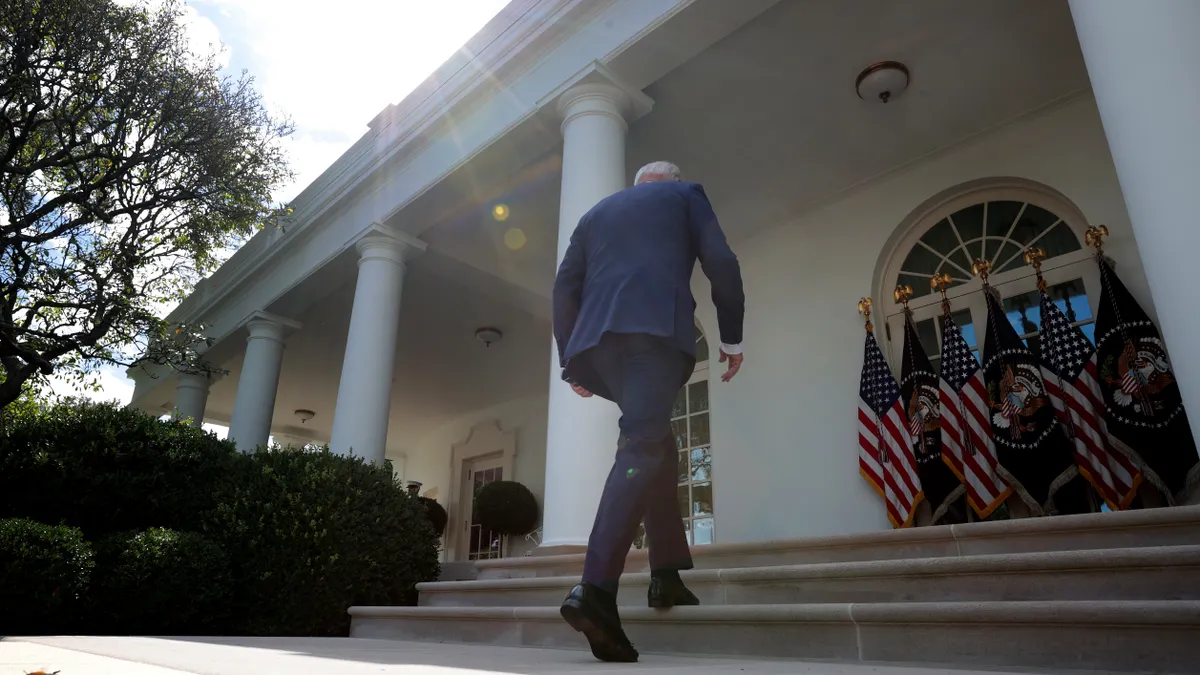Dive Brief:
- President Joe Biden’s student loan forgiveness plan will cost the U.S. government about $400 billion over the next three decades, the nonpartisan Congressional Budget Office estimated in a report released Monday.
- According to CBO’s estimates, 95% of student loan borrowers meet the plan’s income criteria, which limits forgiveness to those earning up to $125,000 annually, or $250,000 for married couples filing jointly. They are slated to receive $10,000 in loan forgiveness, or up to $20,000 if they had Pell Grants. Around two-thirds of eligible borrowers have received at least one Pell Grant, the report said.
- The CBO predicts that 90% of eligible borrowers will apply for debt cancellation. Almost half of eligible student loan borrowers, 45%, will have all of their outstanding debt forgiven.
Dive Insight:
The analysis will likely fuel critics who oppose Biden’s loan forgiveness plan. These conversations have important implications for higher education, as conservative policymakers have been calling for colleges to be held responsible for student loan forgiveness, rising tuition costs and the nation’s high student debt levels.
However, the agency says that its estimates are highly uncertain. That’s partly because it’s hard to predict how much borrowers would have paid back if Biden had taken executive action to cancel their debt.. Future economic conditions and potential changes to loan terms also muddy the picture.
The $400 billion estimate does not include changes to income-driven repayment plans, which lower borrowers’ monthly payments by basing them on income. Biden’s regulatory proposals for income-driven repayment would lower the share borrowers must pay, potentially driving the total cost higher.
The report provided political ammunition to Republicans, who have argued the debt forgiveness plan is fiscally irresponsible and unfairly benefits college-goers at the expense of people who never enrolled.
“CBO’s $400 billion cost estimate shows this administration has lost all sense of fiscal responsibility,” Rep. Virginia Foxx, a Republican and ranking member of the House Education and Labor Committee, said in a statement. “Rather than working with Congress to bring down college costs, President Biden has opted to bury the American people under our unsustainable debt.”
Democratic lawmakers came to the plan’s defense following the report’s release. Sens. Chuck Schumer, from New York, and Elizabeth Warren, from Massachusetts, said in a statement that they don’t agree with all of the CBO’s assumptions.
They argued debt cancellation and other policies like a pandemic-era pause on loan repayments “demonstrate how government can and should invest in working people, not the wealthy and billionaire corporations.”
The CBO’s analysis is lower than other recent estimates. The Penn Wharton Budget Model, a research organization at the University of Pennsylvania, estimated in August that the debt forgiveness plan would cost between $469 billion and $519 billion over the next decade. Including proposed changes to income-driven repayment plans, the cost could surpass $1 trillion.











